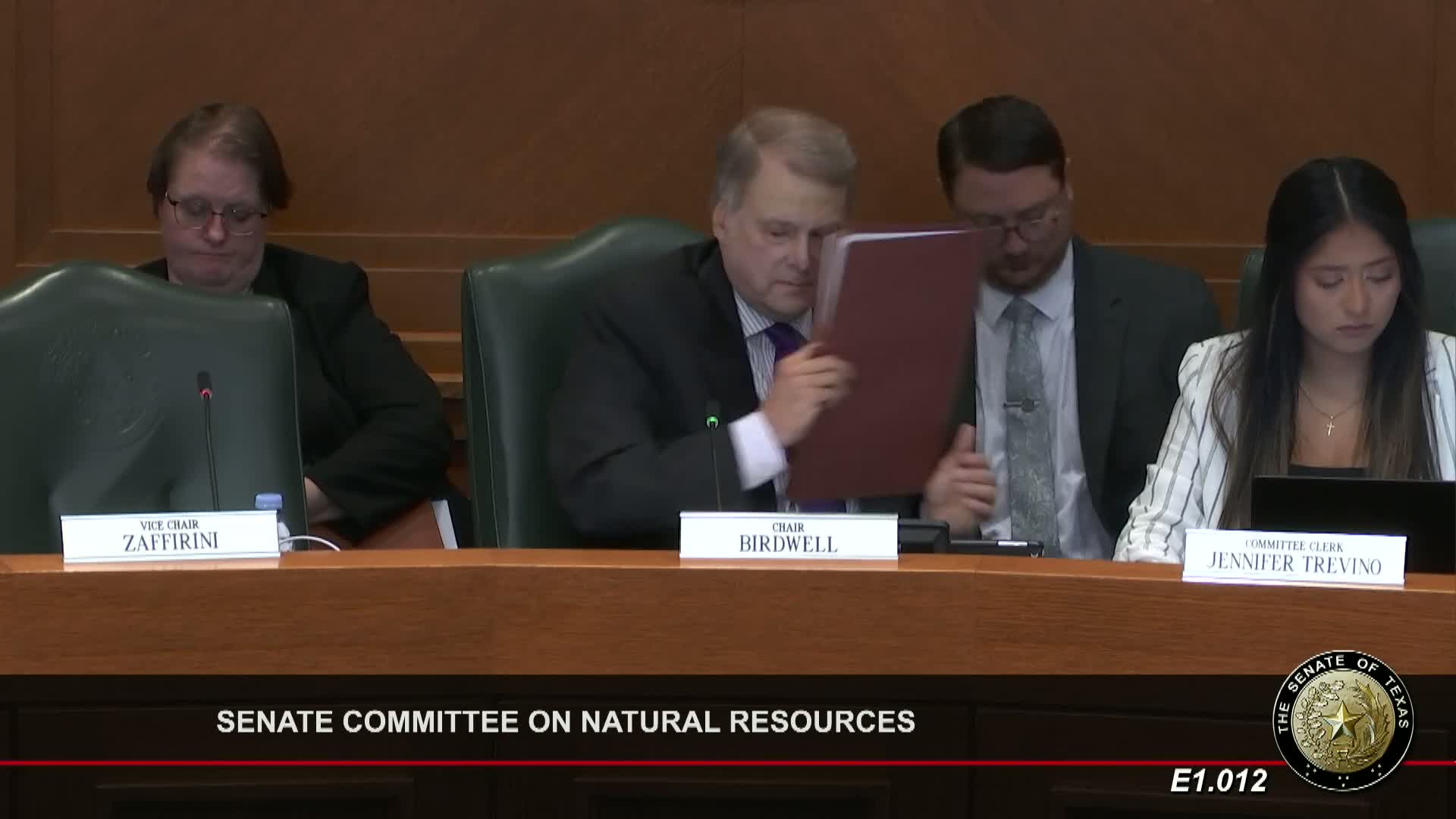Bill would let TCEQ commissioners resolve contested-case discovery disputes; committee substitute adds timing safeguard
Get AI-powered insights, summaries, and transcripts
Subscribe
Summary
SB 2203 would allow parties in TCEQ contested-case hearings to certify discovery-scope disputes to the TCEQ commissioners; a committee substitute abates SOAH’s 180-day timeline while commissioners decide.
Senate Bill 2203, sponsored by Senator Brian Birdwell, would create a statutory mechanism for parties or applicants in TCEQ contested-case hearings to certify disputes over the scope of discovery to the TCEQ commissioners for resolution. The bill aims to reduce inconsistent rulings on discovery that can prolong or complicate adjudicative proceedings.
The author told the committee that contested cases before the State Office of Administrative Hearings (SOAH) often involve complex legal and technical questions. When an administrative law judge permits discovery that a party believes exceeds the scope of the permit, the party currently has limited recourse if the judge refuses to certify the question to the commissioners. "This bill ensures that both Protestants and applicants in a contested case have a defined mechanism to resolve scope of discovery disputes," the author said in the committee.
Committee substitute: after consultations with SOAH and industry, the committee substitute clarifies timing to protect SOAH’s statutory requirement to complete contested-case hearings in 180 days. The substitute allows SOAH’s 180-day deadline to be abated until one business day after the TCEQ commissioners make a determination on a certified question; it also codifies an existing TCEQ rule practice for processing such questions.
Support and testimony: Emily Lindley of the Texas Association of Manufacturers testified in support, saying the bill promotes consistent application of agency rules. Vasu Bahara, deputy chief administrative law judge at SOAH, and Chris Makum of Waste Management also supported the substitute and said it balanced procedural fairness and administrative efficiency.
Why it matters: supporters said certified questions limited to discovery scope help keep contested-case proceedings focused on whether permits meet statutory and regulatory standards and give the agency discretion to interpret its own rules. The committee substitute was described by SOAH as addressing timing concerns that could otherwise create scheduling conflicts for contested-case completion.
Outcome: public testimony closed and the bill was left pending; the committee substitute was discussed and received support from resource witnesses and industry groups. No final committee vote was taken at this hearing.
